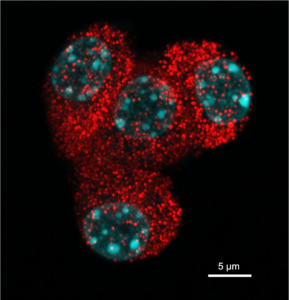Ultra-sensitive Probes for High Resolution Imaging of Hormone Secretion in Islet Cells of Physiological Preparations
Contact PI: Wen-Hong Li, PhD, University of Texas Southwestern Medial Center
Start Date: September 2022
End Date: June 2025
HIRN Catalyst Award Recipient
Abstract
Malfunction of hormone secretion of islet endocrine cells, including alpha cell, beta cell and delta cell, is a hallmark of both Type 1 and Type 2 diabetes. Dysfunction of islet cells impairs hormone secretion, disrupts paracrine signaling, causes glucose volatility that includes both hyperglycemia and intermittent hypoglycemia. Currently there is not a sensitive and quantitative method for tracking hormone secretion in a population of islet cells, limiting our ability to characterize human islet cells in physiological preparations including intact islets or tissue sections.
The proposed development project is expected to primarily support and to facilitate the mission of at least one HIRN consortium: HPAC (Human Pancreas Analysis Consortium). HPAC investigates the physical and functional organization of the human islet tissue environment, cell-cell relationship, paracrine signaling, and islet cell function and dysfunction. A non-invasive imaging assay capable of tracking secretion activity of individual islet cells with high sensitivity and high spatiotemporal resolution, and applicable to intact islets or pancreatic slices would enable us to characterize the physiological regulation of hormone release of islet cells in their natural habitat, to identify cell dysfunction (including impairment or malfunction of insulin, glucagon or somatostatin release), to investigate islet cell heterogeneity, and to explore human islet tissue environment at high resolution.


